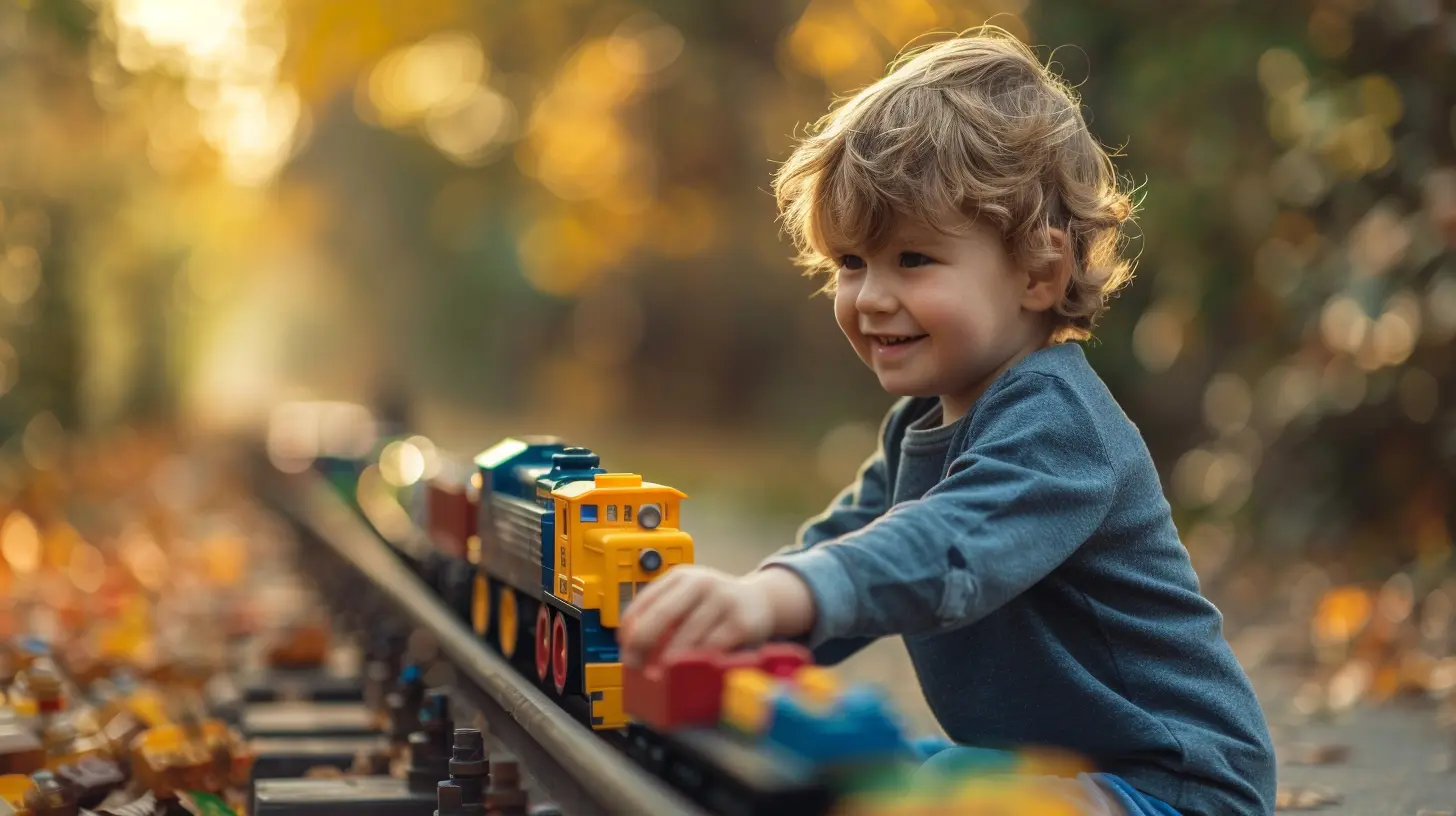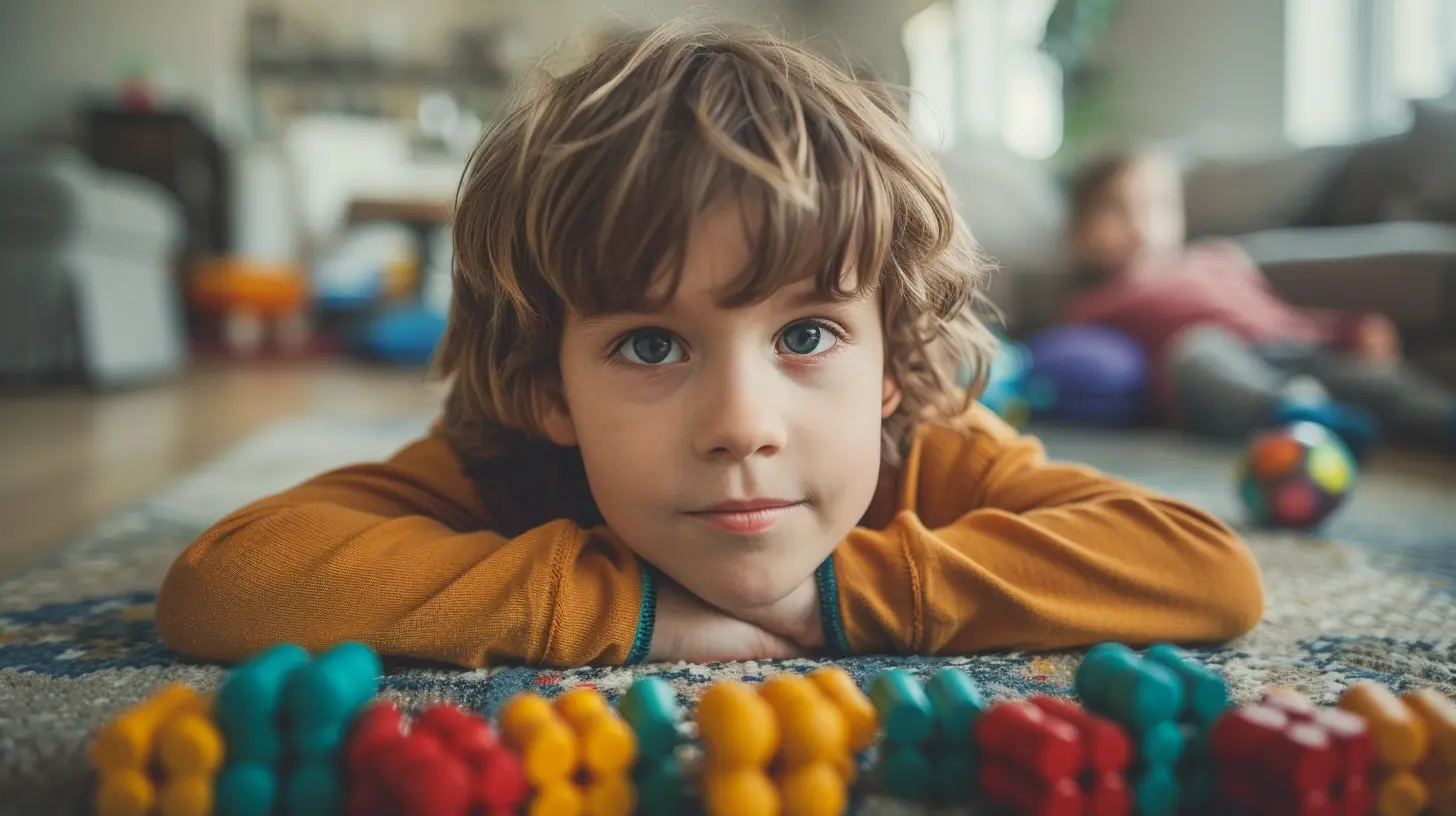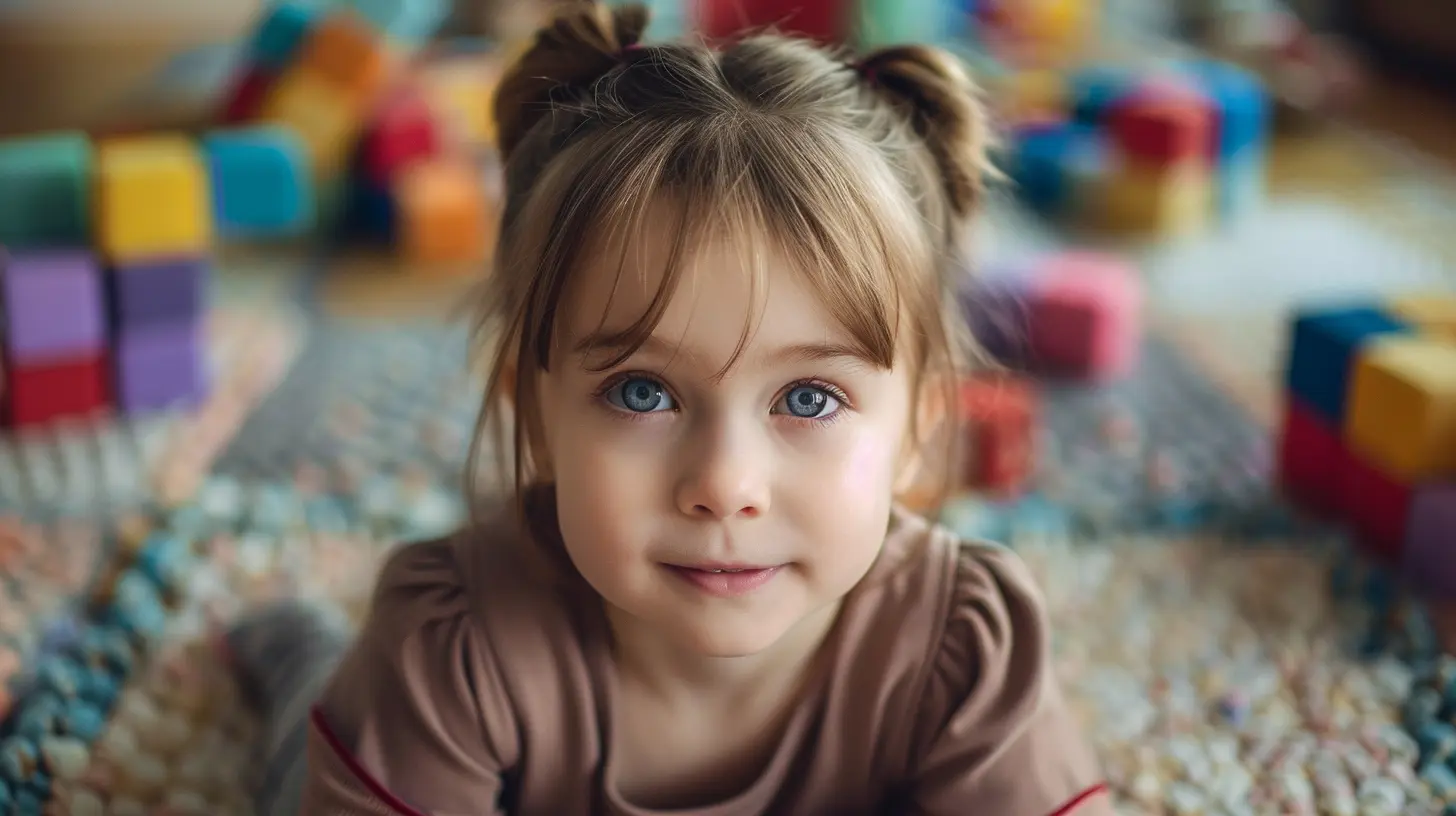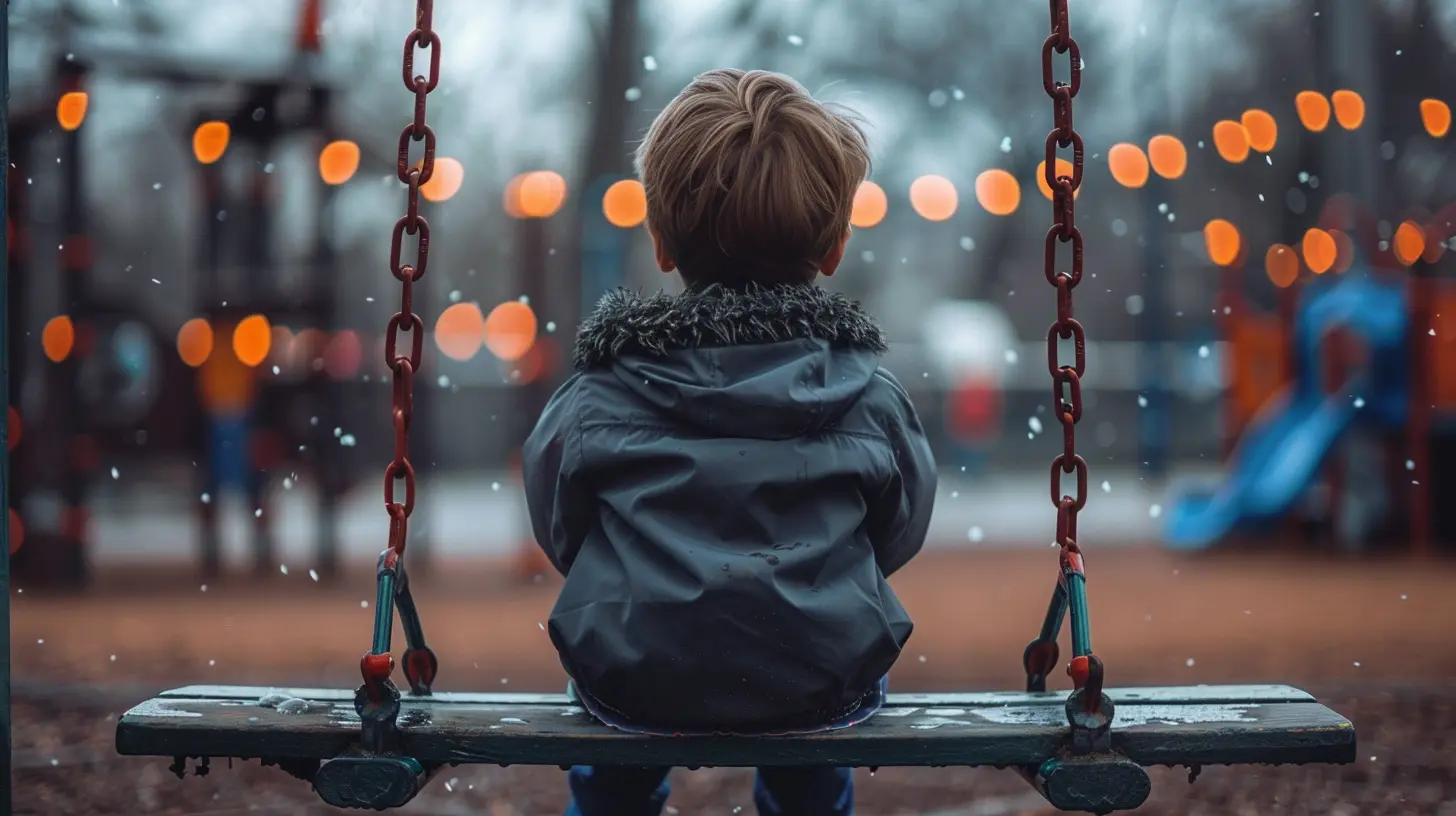The Role of Play in Teaching Self-Control and Discipline
27 August 2025
When you think of playtime, what comes to mind? Maybe a room full of toys, wild giggles, and kids bouncing off the walls. Sounds chaotic, right? But here’s the thing: play isn’t just about fun and games. It’s actually one of the most effective (and natural) ways children learn important life skills—like self-control and discipline.
Yep, that’s right! While they’re building block towers, pretending to be superheroes, or playing tag, kids are also developing the tools to regulate their emotions, follow rules, and manage impulses. It's like sneaking spinach into a brownie—they don’t know they’re learning, but they are.
Let’s take a deep dive into how play can actually lay the foundation for self-discipline, patience, and self-regulation, and what that means for our parenting journey.
Why Self-Control and Discipline Matter From the Get-Go
Before we explore the magical powers of play, let’s understand why self-control and discipline are such big deals.Self-control is the ability to pause, think, and choose the right response—rather than acting on impulse. Discipline is the consistent behavior shaped by self-control, guidance, and boundaries. Together, they help kids:
- Handle frustration (like losing a game or not getting their way)
- Stay focused (especially in school settings)
- Maintain healthy relationships (sharing is hard, right?)
- Make smarter decisions (like not eating ALL the cookies)
Clearly, these are skills they’ll need well beyond childhood. The kicker? These abilities don’t just appear out of nowhere. They’re built over time—and play gives kids the perfect practice ground.
The Science Behind Play and Self-Regulation
Research in child development backs it up. Studies show that free, imaginative play increases a child’s ability to regulate emotions and control behaviors over time. In fact, legendary psychologist Lev Vygotsky argued that play is the leading source of development in early childhood.Why? Because when children play, especially with others, they’re faced with situations where they must wait their turn, negotiate rules, handle disappointment, and follow social norms. And here’s the twist—they do it willingly because play is fun!
Think about it: what better way to practice patience than waiting your turn in a game that you're dying to win?
How Different Types of Play Teach Self-Control
Not all play is created equal. Let’s break down how different kinds of play help shape self-discipline.1. Pretend Play: The Ultimate Rehearsal for Real Life
Also known as imaginative or dramatic play, pretend play is when kids take on roles—think doctor, pirate, or even a parent. This kind of play is a developmental goldmine. Why?- Role-playing requires rules: Even if they’re made-up, kids must follow the "logic" of the pretend world.
- They practice empathy: By stepping into someone else's shoes, they understand different perspectives.
- Impulse control is a must: They can’t break character or hijack the story without breaking the game.
So, when your child is running around the house with a blanket-cape pretending to save the world, they’re not just being cute—they’re developing the emotional muscles for adulting.
2. Structured Games: Learning to Follow Rules Without Tears
Games with set rules—like Simon Says, board games, or hopscotch—are fantastic for teaching discipline.Here’s what kids gain through these:
- Listening skills (you can’t win Simon Says if you don’t pay attention)
- Turn-taking (not as easy as it sounds for a 4-year-old)
- Handling loss and frustration (no one likes losing, but it’s a part of life)
Even simple card games or memory games exercise their mental “brakes.” It’s all about practicing the “stop and think” approach.
3. Physical Play: Controlling The Body, Then The Mind
Think tag, jumping rope, or climbing. Physical play challenges kids to control not only their minds but also their bodies.What’s being developed here?
- Motor control (which is closely linked to impulse control)
- Risk-taking with boundaries (jumping off a swing is fun until you go too high)
- Endurance and patience (like waiting for your next turn on the slide)
Physical play is also an amazing way for kids to release built-up energy. And guess what? That makes it easier for them to focus and behave afterwards.
4. Solo Play: The Foundation of Intrinsic Discipline
Now, here’s one that often gets overlooked—independent or solo play. When kids play alone, they are:- Setting their own goals
- Keeping themselves engaged
- Managing their own frustration when things don’t go as planned
This form of play nurtures intrinsic motivation—doing something because they want to, not because an adult told them to. That’s real self-discipline.
How Parents Can Support Play for Discipline Development
As much as we wish kids would always just figure things out on their own, a little nudge from us can make a big difference.Here’s how we can support the process:
1. Create a Play-Friendly Environment
Kids need time and space to play—freely and without a rigid agenda.- Limit screen time to make room for imaginative play
- Provide open-ended toys like building blocks or art supplies
- Designate space where mess is welcome (because play can get messy)
2. Join in (But Don’t Take Over)
Play together, but don't dominate it. Let your child lead.- Ask questions like, “What should I be in your game?”
- Model self-control by handling your own frustration playfully
- Let them come up with rules—even if they bend them a little
Remember, you’re not just playing—you’re mentoring.
3. Use Play to Talk About Feelings and Limits
Play can be a great way to open conversations about emotions and behavior.- If a toy gets thrown in frustration, ask: “What else could you do when you feel upset?”
- Have a puppet “make a mistake” and ask your child what the puppet should have done differently.
This keeps teaching moments light-hearted and less preachy.
The Long-Term Benefits of Playful Discipline
Over time, kids who have regular opportunities to play (especially play that challenges them) tend to develop:- Greater emotional intelligence
- Better school performance
- Stronger problem-solving skills
- Healthier peer relationships
Why? Because they’ve practiced all the key parts of self-control and discipline through play. It’s like going to the gym, but for the brain and heart.
What If Your Child Struggles with Discipline During Play?
Every child is different, and some may find it harder to follow rules or control emotions during playtime. If that’s your kid, don’t stress. Here are a few strategies:- Break down the rules into simple steps
- Model calm behavior even when they’re losing it
- Focus on progress, not perfection
- Reinforce positive behavior with praise like, “You waited so patiently for your turn!”
Also, be patient with yourself. Teaching discipline through play is a journey—not a one-time event.
Let Kids Play Their Way to Self-Control
Here’s the bottom line: play isn’t just for fun. It’s a natural, joyful, and deeply effective way for kids to develop self-control, discipline, and emotional strength. Whether it’s through building with blocks, battling dragons, or navigating the playground, your child is learning to regulate themselves—one game at a time.So the next time you hear giggles coming from their room or see them squabbling over a toy, take a breath. Remind yourself that this isn’t just "kid stuff." It’s brain-building, heart-shaping, life-prepping work.
And the best part? It all starts with play.
all images in this post were generated using AI tools
Category:
Discipline TechniquesAuthor:

Austin Wilcox
Discussion
rate this article
1 comments
Adria McClintock
Who knew that a game of hide-and-seek could double as a crash course in self-control? Let’s embrace the chaos of play—where discipline meets giggles and every lost sock holds a lesson!
September 19, 2025 at 4:06 PM

Austin Wilcox
Absolutely! Play not only nurtures joy but also instills vital life skills like self-control and discipline in a fun, engaging way.


